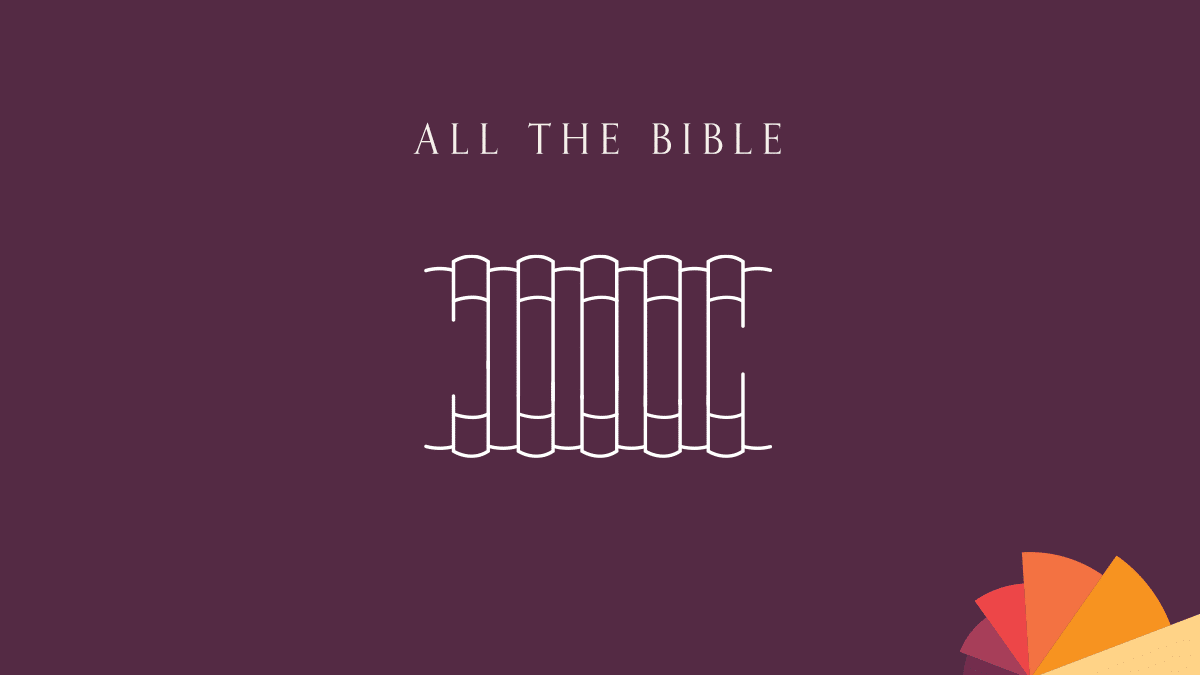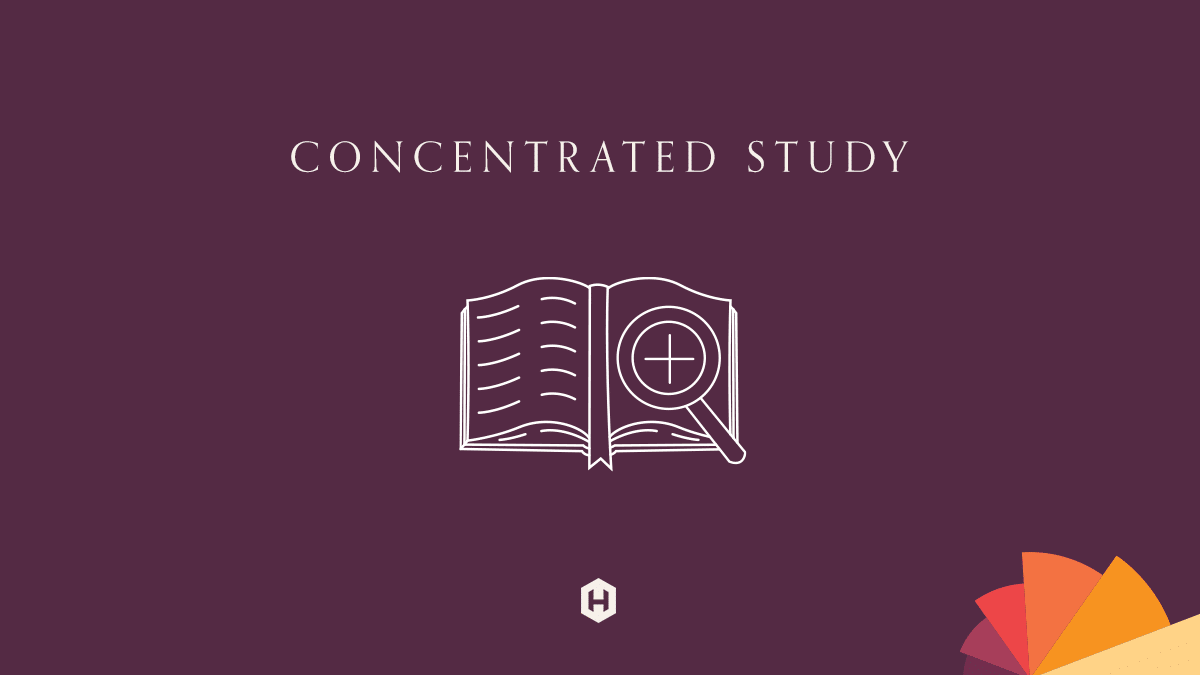In this post—which I adapted from my book Your Spiritual Formation Plan—I describe three core practices of reading Scripture for individuals. While I call them the “ABCs” of Scripture reading, they are not just for beginners. Each one can serve a unique role in everyone’s formation process.
My goal here is to introduce these three practices and help you navigate the basics of each one so you can apply them to a lifetime of deep and rich Scripture reading.
God Gave Scripture to the Church
Before we get into the details, though, we must remember an important truth that helps keep our interpretations of the Bible in check:
God gave Scripture to the church, not just to individuals.
This means that while we can read and study on our own, we should never read Scripture in isolation. Even when reading alone, we remember what we learned from others in the church, and we must always submit our understanding to correction that can come from those around us, those over us, and those who’ve come before us.
By submitting our understanding to reliable handlers of the Word, we’re saying, “I’m not my own final authority on the meaning of God’s Word!” We allow these reliable teachers—especially those God has placed over us and whom we personally know—to guide us along the way, as we open ourselves to possible instruction, correction, and even challenges.
We must read Scripture in fellowship with believers because only then can we reliably study on our own. So, assuming we’re reading Scripture with others, individual study can be immensely fruitful.
Subscribe to HIM Publications to get weekly blogs like this delivered to your inbox.
The ABCs of Scripture Reading
As you study on your own, the goal is to cultivate a vibrant and joyful Scripture-reading life. I’ve identified three vital mile markers as signposts along the way toward that goal: the ABCs of Scripture reading:
- All the Bible
- Book Study
- Concentrated Study
You will see them throughout your journey because they appear in different ways as you progress—and like the ABCs of English, you never graduate from them. So, take the necessary time to learn them now.
They are listed below in order of priority. Do them in sequential order at first, but as you grow in reading Scripture, you’ll find that they overlap and work together in synchronicity.
A. Read All of the Bible

The first step of intentionally reading Scripture is to read all of the Bible. “All scripture is inspired by God and is useful for teaching, for reproof, for correction, and for training in righteousness, so that everyone who belongs to God may be proficient, equipped for every good work” (2 Tim. 3:16–17, NRSV).
God inspired all of Scripture, so we must read all of Scripture!
This is the first mile marker of cultivating a vibrant Scripture-reading life. It’s first because it allows you to better grasp the many parts of the Bible by seeing the whole.
While we need to continue reading the entirety of Scripture throughout our lives, the first read-through is vital. I often wonder for Christians who never read the whole Bible, What if God provided the key to a breakthrough in your life in a part of the Bible you’ve never read, and you simply need to read it?
Let me pose a similar question to you: If you found out today that God had inspired sixty-seven books of the Bible, instead of just sixty-six, would you read the missing book right away?
Of course, that’s not true because the canon of Scripture is closed. But that’s how Christians should treat any part of the Bible they’ve never read—like the treasure it is!
Perhaps God has a special word for you from his fixed Word, if only you will read the book of his special revelation. So, start by reading all the Bible. If you’ve read parts here and there, go ahead and read it all, cover to cover.
B. Learn How to Do a Book Study

The second mile marker is completing a book study.
A book study is systematically studying a single book in the Bible. Choose one of the sixty-six books of the Bible and go deep into it. You can complete a simple or a detailed book study.
A simple book study goes something like this: 1) read the book once to get the big picture, 2) read the book again and write down themes from the book, and then 3) read the book a third time to decide the main theme. That’s an example of conducting a simple book study.
A detailed book study is an activity of the Inductive Bible Study method. Inductive means that you make conclusions by compiling clues as you go along. The opposite is deductive, which means starting with a conclusion, and then unpacking its meaning and logic along the way.
The Inductive Bible Study method involves systematically studying one book of the Bible as you analyze the context to determine the meaning of specific passages within it. See Appendix B of Your Spiritual Formation Plan for step-by-step instructions for completing a detailed book study using this method.
My goal for you in this post is to help you pick one book of the Bible to be your companion during this season of your journey with God. This goal works with both types of book studies (simple and detailed). That means you need to select a book of the Bible!
This is exciting because you get to choose what you want to study.
As I mentioned about desire in general, being honest with yourself about your desire for Scripture reading is important.
Included in the workbook version of the content you’re reading (see Chapter 10 of Your Spiritual Formation Plan) you’ll answer a question, “Which book of the Bible do you want to study?” When you answer this question, it’s not about what you should study but what you want to study.
Think and pray through it, until you’re clear-minded before the Lord about which book to choose. If you get stuck, ask for help, and try to select the book on your own, not letting someone else pick it for you.
It’s like picking a friend for a journey. When you choose a book of the Bible as your traveling companion, you’ll be glad you willingly chose how to spend your time in the coming weeks and months.
How does God work in this selection process?
God guides us as we take action.
Ask God for direction to start, then pay attention to what book grabs your attention. Trust that God is at work in your heart and mind.
Most of the time, when I’m operating from a healthy place spiritually, the Holy Spirit guides my attraction toward a certain biblical book. I don’t worry too much about whether “God told me” to read a certain book; I rest in the fact that it’s all God’s Word anyway! His Word still speaks because it’s living and active (Heb. 4:12).
So there’s no risk of choosing the “wrong” book to read. But once a decision is made, commit to it for a season.
Stay in that one book for three to nine months at a time as a rule of thumb. Based on my experience and the wisdom of others, Christians need at least three months of regular reading to let a particular book’s message saturate their hearts.
C. Form Concentrated Reading Habits

The third mile maker of deep Scripture reading is concentrated reading. This is focusing your thoughts on a single verse, phrase, or word from Scripture.
This takes the form of two skill sets: meditation and memorization. I listed concentrated reading third because while you can do it at any point of your journey with any passage, it’s most effective when you’ve passed mile marker one and two already.
By reading the whole Bible and understanding the overall picture of a particular book of the Bible, you can meditate on a specific verse from that book and mine rich raw materials. When you’re getting your feet wet in Scripture reading, meditate on a passage from the book you’re studying.
But as you progress, remember that the process is not always linear. Sometimes you’ll focus on a verse from a book you haven’t studied in depth, like a verse from the Psalms, as an example.
That’s good too.
Meditate on a Scripture passage before memorizing it because meditating helps you memorize, but memorizing doesn’t necessarily help you meditate. Meditating on Scripture means picking one verse in the Bible and dwelling on it before the Lord.
Meditating on Scripture is more about heart-level reading than mind-level analysis.
Psalm 1:2 says that the person who “meditates day and night” on the Word is blessed. Unlike any other practice, from my experience, meditation helps us move Scripture from our heads to our hearts.
As we allow God’s Word to saturate our hearts through meditation, we will find ourselves memorizing Scripture.
Rote memorization is valuable, but if it doesn’t lead to delightful meditation on the Word, our priorities are disordered. Find what works for you. Whatever way you come at it, remember that memorization exists for the purpose of meditation. We memorize to help us meditate when we don’t have the Bible in front of us.
No matter our age, we can all memorize Scripture.
With God’s strength, you can do this!
See Appendix C of Your Spiritual Formation Plan for some key Scripture verses for meditation and memorization.
Those are the three mile markers—the ABCs of Scripture reading!
Reading Scripture for the Long Haul
I provided this high-level vision for forming your Scripture reading plan because starting on the right foot is important.
So, what’s your next step?
If you haven’t read the entire Bible, start there. Maybe you’ve read the New Testament but not the Old. Go ahead and read the Old! Spend the time you need to read the whole Bible in a period of three months, six months, or a year—whatever timeframe works for your current season of life.
Once you’ve done that, complete a book study. Then, as you spend time with that book, practice meditating on and memorizing Scripture from it.
If you feel overwhelmed with any of this, take heart! God energizes us as we cooperate with him.
And remember, the disciplines work together, so use your plans for silence, solitude, and rest to read Scripture. Your weekly day of rest and your annual retreat can also provide time to go deep into Scripture reading.
Use my workbook on spiritual formation to form your specific plan for reading Scripture for the long haul. This workbook helps you form your plan for spiritual formation in general (with a focus on ten core disciplines), so you can take your next steps with God. The workbook also contains suggested Scriptures for memorizing the Word and an important step-by-step how-to guide for learning exactly how to conduct a book study.
Supplemental Reading
Michael Casey’s book Sacred Reading: The Ancient Art of Lectio Divina (Liguori, MO: Liguori Publications, 1996) is a rich resource for going deeper into concentrated reading of Scripture. As a Cistercian monk, Casey applies what he’s learned from ancient monastic traditions to modern readers of all types today. I recommend this book (see my full-length review of it here), but a fair warning: it goes deep!
Leave Your Feedback
In a comment directly below, let us know…
- Have you read the entire Bible? Why was doing so valuable for your long-haul discipleship?
- Do you know how to do a book study? What was your experience?
- Do you have any tips about memorizing or meditating on Scripture not mentioned here?
- Anything else you want to add?
